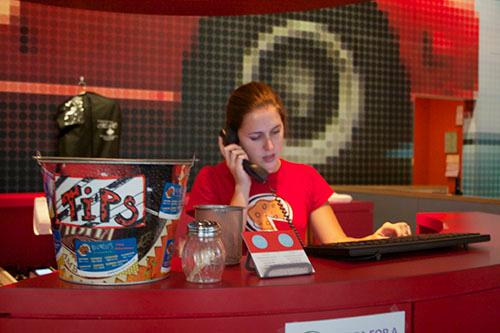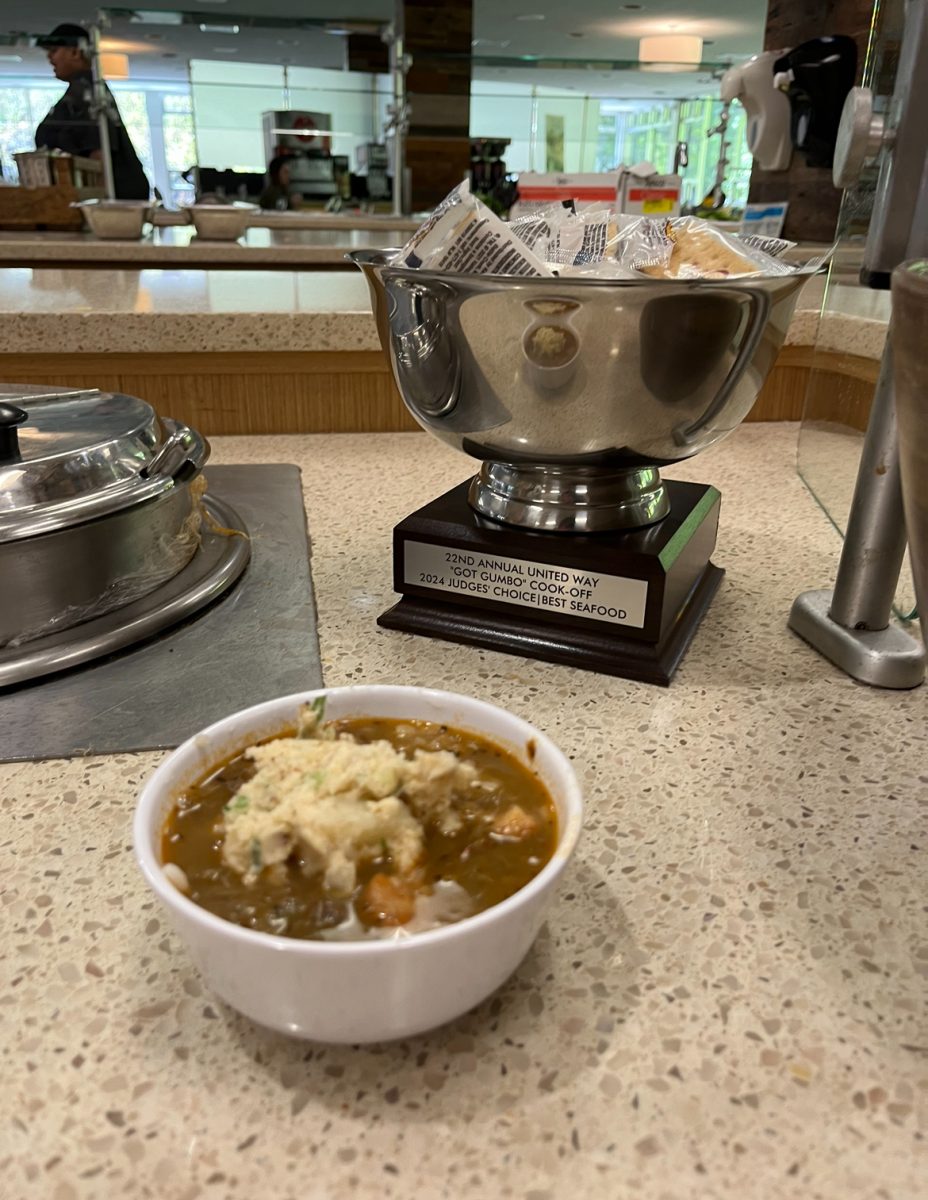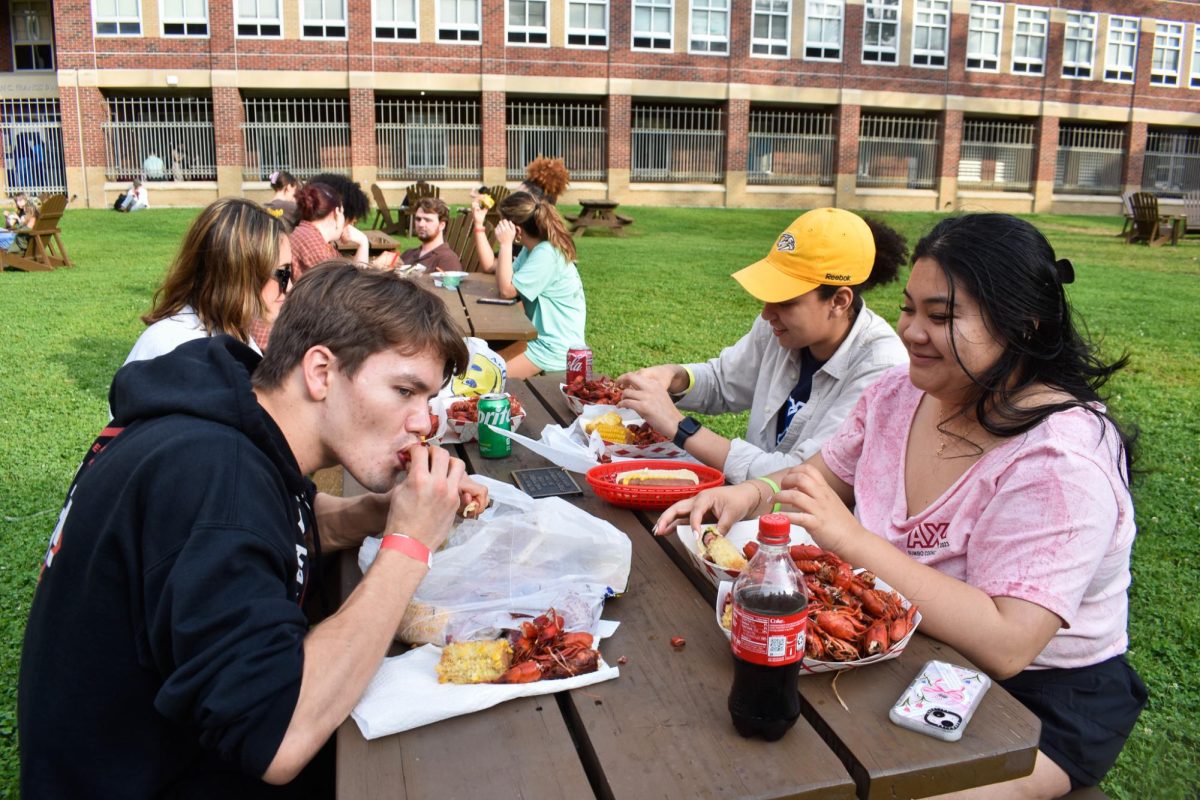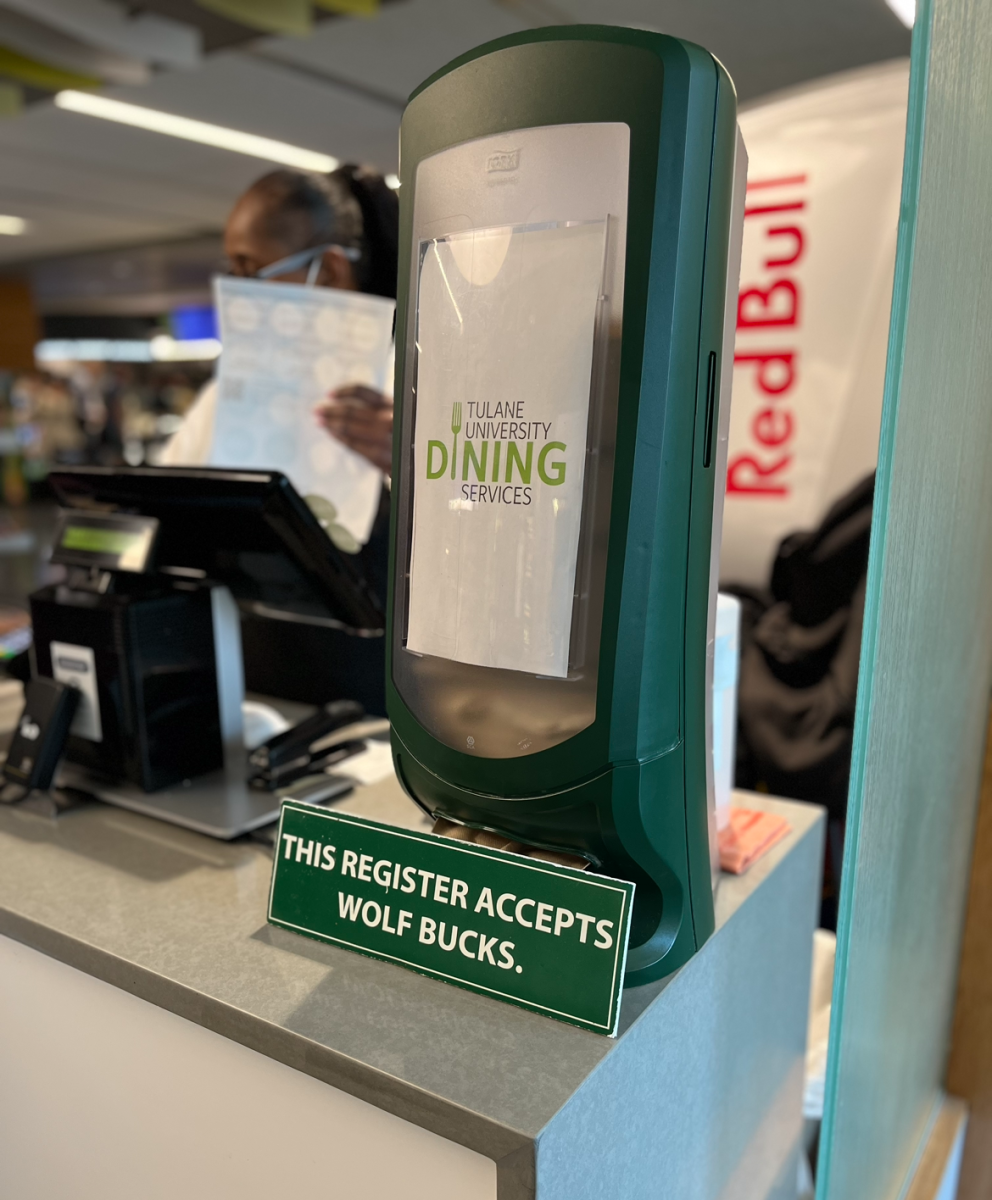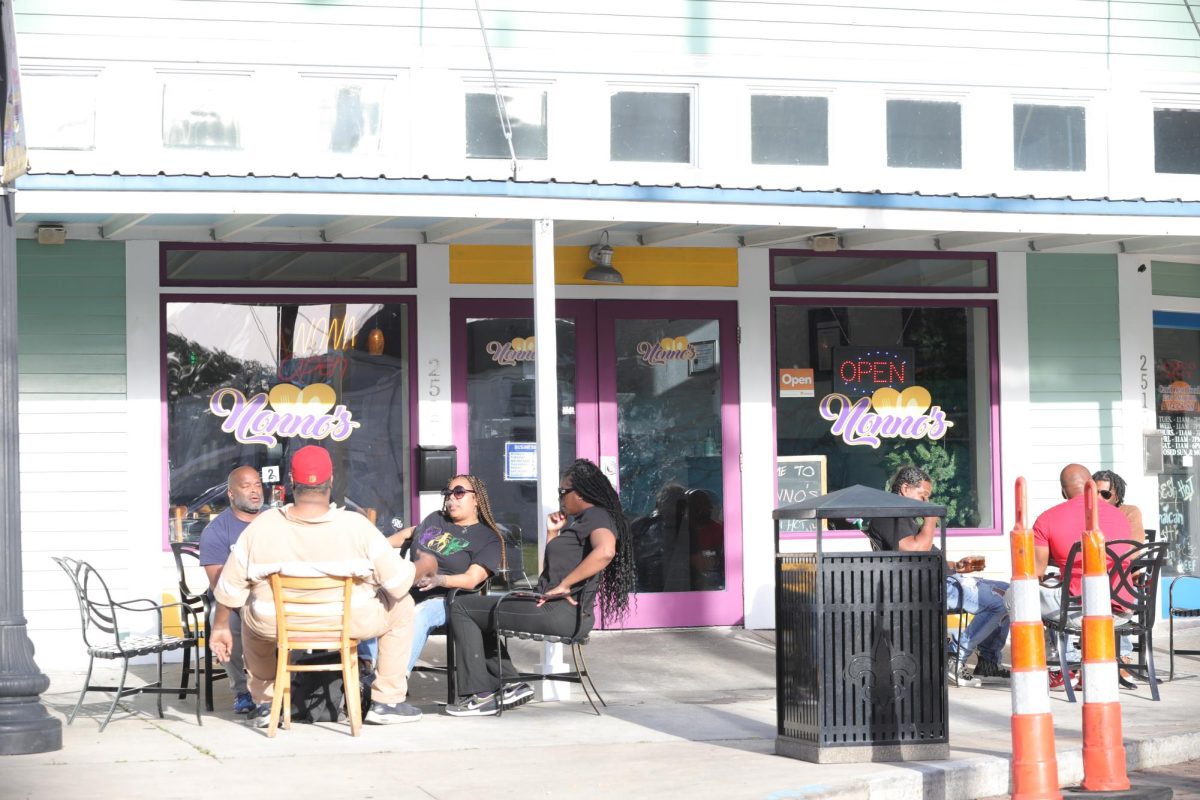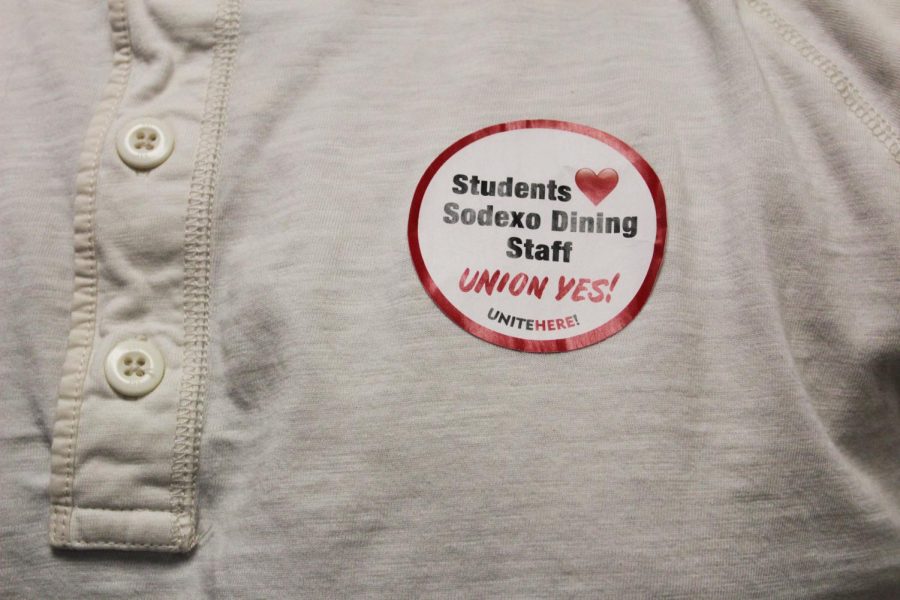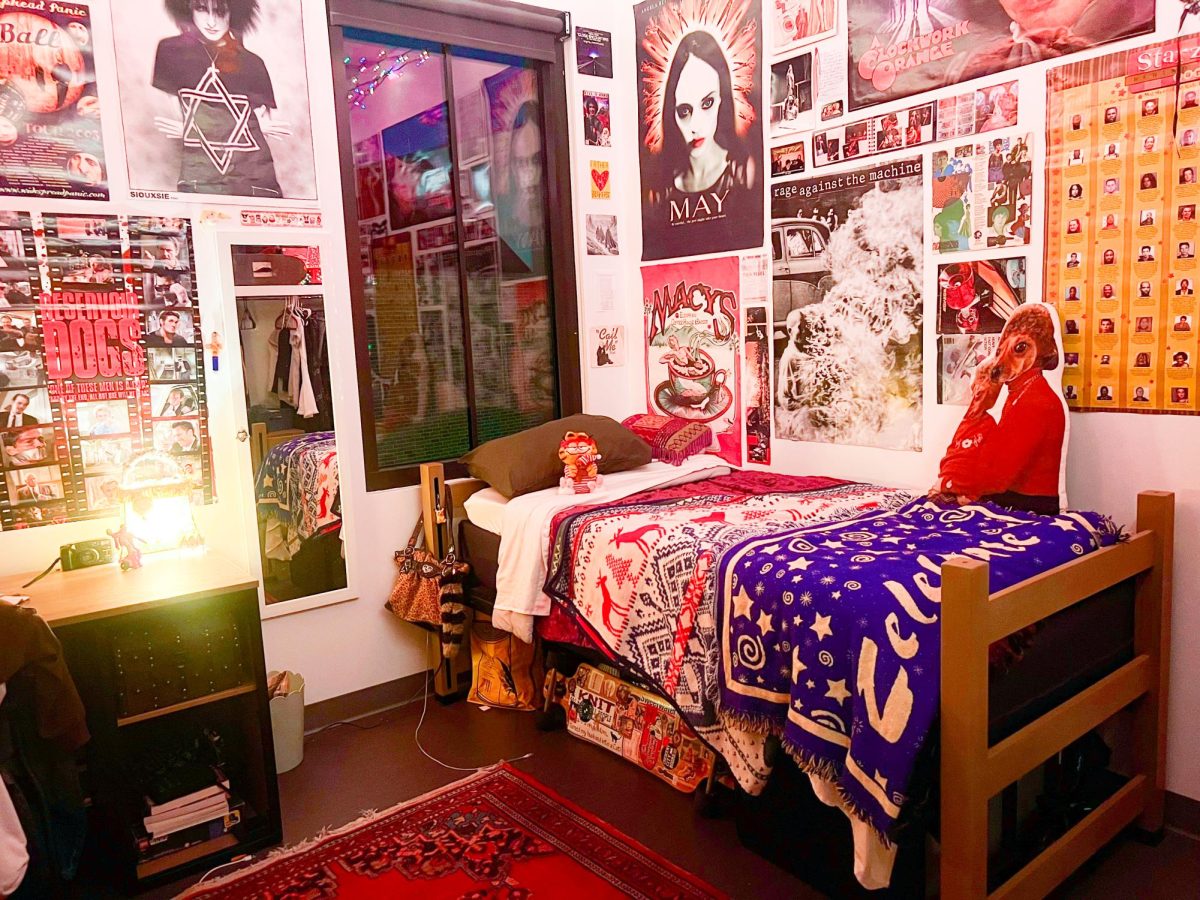Finance senior Jonathan Smith, a waiter at Sainte Marie in the Central Business District, delivers drinks to a private party consisting of the owner, the editor of Newsweek magazine, and their children when a slippery Bloody Mary glides down the tray onto the lap of the editor.
Smith emits a loud, “Oh s—,” while glaring directly into the disapproving eyes of his boss.
“I thought, for sure, I’m getting fired,” he said.
And such is the environment for the many students who work in the food service industry. The stress, odd hours and uncertainty of pay are just part of the job. Unemployed students might find themselves asking-is it worth it?
Smith, a trained bartender, has made his way around the hospitality industry. After getting laid-off from his last job as a bartender, he hoped to stay in the same field. Then a friend offered a lucrative position as a waiter at Ste. Marie. After doing some research, Smith fell in love with the restaurant.
History senior Caroline Hoffman, a hostess at Reginelli’s pizzeria, and political science junior Taylor Denson, a waitress at Salu, both have experience in the business as well.
Hoffman was told about the laid-back position at Reginelli’s after working in several restaurants before. Denson, after working as a hostess and food runner, was told by her sorority sisters about waitressing at Salu.
Although it’s best to have prior experience with food service, every restaurant has its own vibe that affects the work environment.
“Ste. Marie is different than your typical Quarter restaurant,” Smith said. “Everyone is young and they show that in the atmosphere while also being professional.”
The professional vibe might be intimidating for some, but the city has plenty of different places to choose from.
“Alcohol is always flowing, whether it’s from the customers or from the management,” Denson said, “It’s fast and upbeat.” Salu shines with a blue ceiling mural, bright red and yellow walls and a pink backlit bar.
Atmosphere is more than just color, though. The food isn’t the only flavor in the industry. People add so much more.
“I love the people I work with,” Hoffman said. “My coworkers sometimes know more about me than my close friends.”
It may sound like all fun and games from the outside, but the work can be stressful. Peak hours and special events, such as Saints games and holidays, bring in more customers. Students already have enough stress from other obligations, so some may question if working in a restaurant is really worth it. Some say the pay is good, the hours easily coincide with schedules and management is usually flexible with students’ needs.
Hoffman gets days off for special requests, such as big tests and sorority recruitment. Management understands her needs and lets her work on her own schedule. To focus on school, Smith chose to only work weekends.
“The restaurant business is not my career,” he said, “but when plates are twenty dollars or higher, I can usually walk away with a lot of tips.”
When he graduates, Smith said he can’t depend on Ste. Marie for income to pay off bills and student loans.
“But right now, it should suffice, which is why a lot of students work in the industry. It pays out very well,” he said.
Working in hospitality offers great opportunities for network and self-improvement. As a finance major working in the Central Business District, Smith gets to chat with professionals in his field while also getting his name out there.
“It gives me the opportunity to present myself as maybe a future applicant or a prospect for their business,” Smith said. “I’m able to communicate or learn something just by talking to them.”
It takes a malleable person to work in a restaurant. Every customer and every experience is different, and employees have to be able to cater to every one of them.
“My owner says, ‘You can teach Mick Jagger how to make drinks, but you can’t teach a bartender how to act like Mick Jagger.’ If you have that social ability and can relate to customers, then you can do very well in the hospitality industry while being a student,” Smith said.

Taylor Denson, political science junior, serves customers as a waitress for “Salu.” Salu is located on Magazine Street. (Shamara King)

Jonathan Smith, finance senior, works at Sainte Marie Restaurant. Smith serves as a waiter at this downtown restaurant, located on Poydras Street. (Shamara King)


